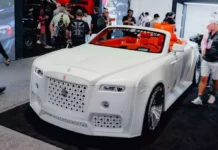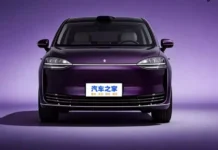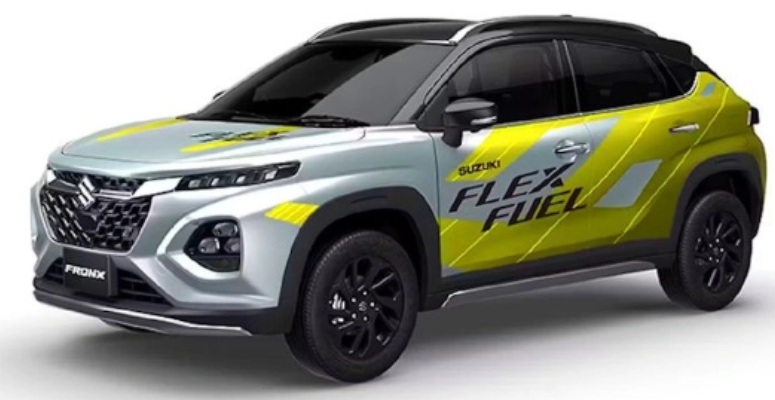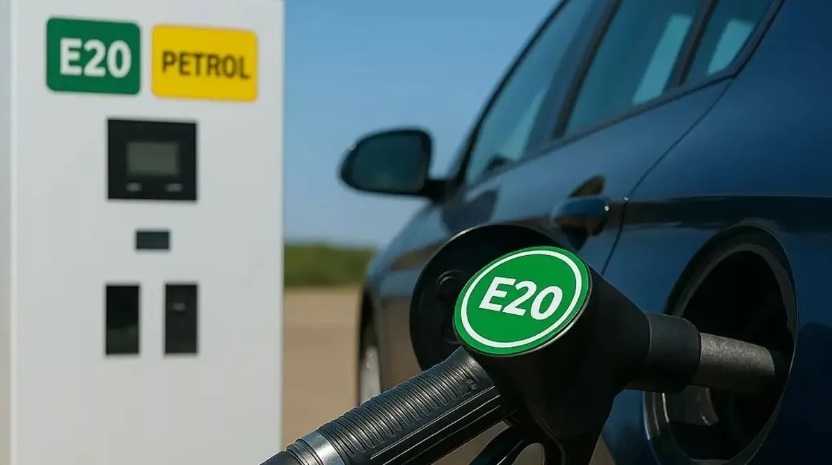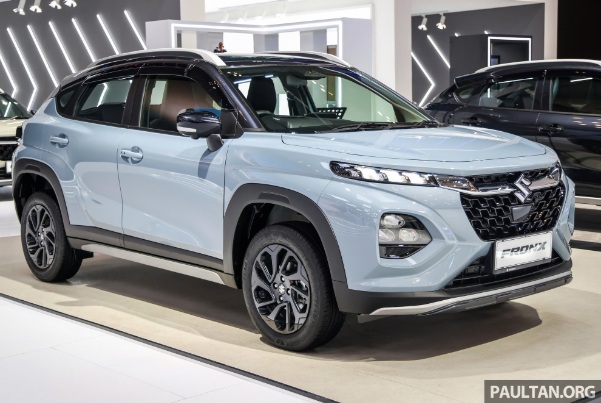Suzuki accelerates its transition to alternative energy sources with the introduction of the Fronx Flex Fuel (FFV*2 Concept), a compact SUV capable of running on flexible fuel.
This model will make its official debut at the Japan Mobility Expo 2025, before entering mass production in 2026.
This marks a significant step in Suzuki’s emission reduction strategy, as the company opts to “greenify” gasoline engines with ethanol, rather than relying solely on electric vehicles.
According to Maruti Suzuki India, a central player in Suzuki’s global strategy, the Fronx Flex Fuel demonstrates the company’s commitment to commercializing ethanol-compatible gasoline engines.
Previously, Suzuki tested ethanol-fueled prototypes in India, but the Fronx FFV*2 will be the first model to enter mass production. Both the 1.2L and 1.5L gasoline engines have been optimized to run on various ethanol blends, surpassing the current E20 (20% ethanol) limit.
The Fronx’s “flexible fuel” variant is expected to feature the 1.2L engine, redesigned to operate stably with higher ethanol ratios, potentially up to E85, aligning with Brazil’s standard.
The majority of global Fronx production will take place at Suzuki’s Gujarat plant in India, allowing the company to seamlessly integrate new production lines and technology without significant reinvestment.
Externally, the Fronx FFV*2 Concept retains the signature design of the Fronx line, featuring a compact SUV silhouette, split headlights, a large chrome-trimmed grille, and 17-inch multi-spoke alloy wheels.
Distinctive yellow graphics along the body and hood, along with the prominent “Flex Fuel” branding, highlight the vehicle’s eco-friendly technology. While purely aesthetic, these details underscore Suzuki’s commitment to flexible fuel innovation at the expo.
The Fronx Flex Fuel’s launch coincides with India’s nationwide push for E20 gasoline, aimed at reducing reliance on imported oil and cutting carbon emissions.
Many Asian countries, including Vietnam, are pursuing similar initiatives. Vietnam’s Ministry of Industry and Trade proposes mandating E10 gasoline nationwide from January 1, 2026, to gradually replace traditional RON95 gasoline.
However, biofuels present technical challenges. Ethanol’s lower energy density increases fuel consumption and reduces efficiency at higher blend ratios.
To address this, Suzuki has optimized the fuel injection system, compression ratio, and transmission in the Fronx Flex Fuel, ensuring smooth urban driving performance while compensating for efficiency losses.
Beyond ethanol, Suzuki aims to establish a closed-loop clean energy system. The company is collaborating with Indian dairy cooperatives to develop biogas plants, providing fuel for its CNG and biogas vehicle lineup.
Maruti Suzuki reveals that the Fronx will offer diverse powertrain options, including traditional gasoline, hybrid, CNG, biogas, and Flex Fuel, tailored to each market’s energy infrastructure and policies.
Alongside its international debut, Suzuki is set to launch the Fronx in Vietnam this October.
Dealerships indicate a projected price range of VND 520 million to 649 million, positioning it as a direct competitor to the Toyota Raize, Hyundai Venue, and Kia Sonet.
Based on teaser images, the Vietnamese variant will feature the 1.2L gasoline and hybrid powertrains, similar to the Indian market configuration.
TH (Tuoitrethudo)








